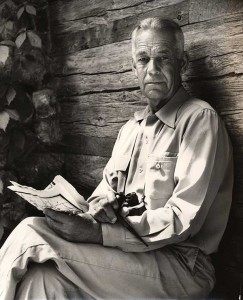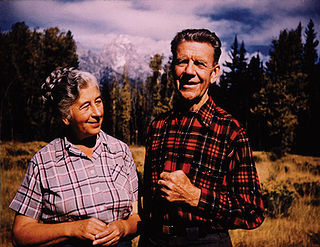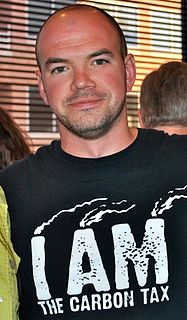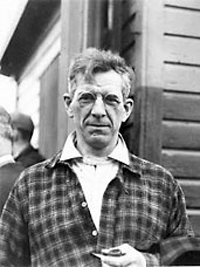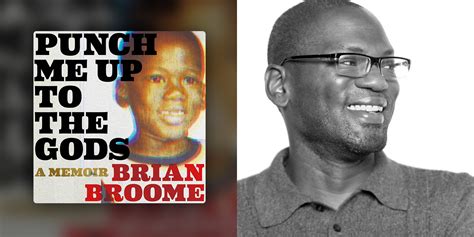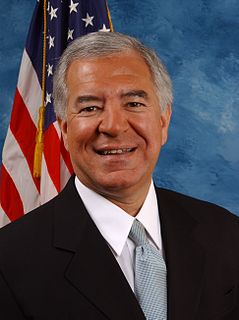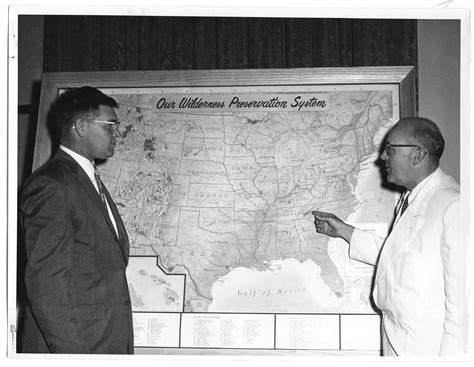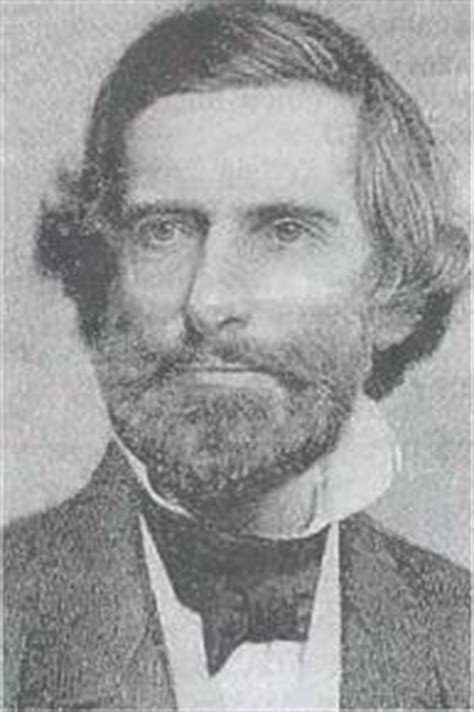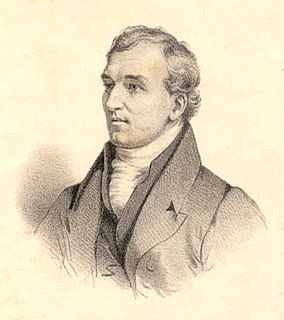Top 822 Wilderness Quotes & Sayings
Explore popular Wilderness quotes.
Last updated on April 20, 2025.
Wilderness can be appreciated only by contrast, and solitude understood only when we have been without it. We cannot separate ourselves from society, comradeship, sharing and love. Unless we can contribute something from wilderness experience, derive some solace or peace to share with others, then the real purpose is defeated.
To be commanded to love God at all, let alone in the wilderness, is like being commanded to be well when we are sick, to sing for joy when we are dying of thirst, to run when our legs are broken. But this is the first and great commandment nonetheless. Even in the wilderness - especially in the wilderness - you shall love him.
How much wilderness do the wilderness-lovers want? ask those who would mine and dig and cut and dam in such sanctuary spots as these. The answer is easy: Enough so that there will be in the years ahead a little relief, a little quiet, a little relaxation, for any of our increasing millions who need and want it.
The sovereign quality of wilderness is the same wherever encountered.... Each manifestation has an unshackled quality-each stirs untapped longings-each gives a fillip to living-each has an unsurpassed lilt which bursts from the deepest wellsprings of life. These are the realities found in the wilderness of the Great Smoky Mountains.
The exquisite sight, sound, and smell of wilderness is many times more powerful if it is earned through physical achievement, if it comes at the end of a long and fatiguing trip for which vigorous good health is necessary. Practically speaking, this means that no one should be able to enter a wilderness by mechanical means.
Wilderness appealed to those bored or disgusted with man and his works. It not only offered an escape from society but also was an ideal stage for the Romantic individual to exercise the cult that he frequently made of his own soul. The solitude and total freedom of the wilderness created a perfect setting for either melancholy or exultation.
When someone died in the wilderness of frontier America, that person's physical remains were buried and the handcarts continued west, but the mourning survivors had hope for their loved one's eternal soul. However, when someone dies spiritually in the wilderness of sin, hope may be replaced by dread and fear for the loved one's eternal welfare.
What is proposed herein is that we have no right, nor any ethical justification, for clearing land or using wilderness while we tread over lawns, create erosion, and use land inefficiently. Our responsibility is to put our house in order. Should we do so, there will never be any need to destroy wilderness.
It occurred to me that for a long time I tried not to write about my own backyard and my home. I suppose I was selfishly keeping it to my self. And in doing so, I was never able to get out into this incredible wilderness area - by the way, I live right at the edge of the most incredible wilderness area probably in the northern hemisphere.
The reason to preserve wilderness is that we need it. We need wilderness of all kinds, large and small, public and private. Wee need to go now and again into places where our work is disallowed, where our hopes and plans have no standing. We need to come into the presence of the unqualified and mysterious formality of Creation.
Any father…must finally give his child up to the wilderness and trust to the providence of God. It seems almost a cruelty for one generation to beget another when parents can secure so little for their children, so little safety, even in the best circumstances. Great faith is required to give the child up, trusting God to honor the parents’ love for him by assuring that there will indeed be angels in that wilderness.
Many, and some of the most pressing, of our terrestrial problems can be solved only by going into space. Long before it was a vanishing commodity, the wilderness as the preservation of the world was proclaimed by Thoreau. In the new wilderness of the Solar System may lie the future preservation of mankind.
A man could be a lover and defender of the wilderness without ever in his lifetime leaving the boundaries of asphalt, powerlines, and right-angled surfaces. We need wilderness whether or not we ever set foot in it. We need a refuge even though we may never need to set foot in it. We need the possibility of escape as surely as we need hope; without it the life of the cities would drive all men into crime or drugs or psychoanalysis.
I am asserting that those who love the wilderness should not be wholly deprived of it, that while the reduction of the wilderness has been a good thing, its extermination would be a very bad one, and that the conservation of wilderness is the most urgent and difficult of all the tasks that confront us, because there are no economic laws to help and many to hinder its accomplishment.
We can have wilderness without freedom; we can have wilderness without human life at all, but we cannot have freedom without wilderness, we cannot have freedom without leagues of open space beyond the cities, where boys and girls, men and women, can live at least part of their lives under no control but their own desires and abilities, free from any and all direct administration by their fellow men.
Something will have gone out of us as a people if we ever let the remaining wilderness be destroyed We need wilderness preserved — as much of it as is still left, and as many kinds — because it was the challenge against which our character as a people was formed We simply need that wild country available to us, even if we never do more than drive to its edge and look in. For it can be a means of reassuring ourselves of our sanity as creatures, a part of the geography of hope.
We should not be living in human communities that enclose tiny preserved ecosystems within them. Human communities should be maintained in small population enclaves within linked wilderness ecosystems. No human community should be larger than 20,000 people and separated from other communities by wilderness areas. Communication systems can link the communities.
Wilderness is rapidly becoming one of those aspects of the American dream which is more of the past than of the present. Wilderness is not only a condition of nature, but a state of mind and mood and heart. It cannot be confined to the museum-case status—seen only as a passing diorama from superlative throughways.
We deeply need the humility to know ourselves as the dependent members of a great community of life, and this can indeed be one of the spiritual benefits of a wilderness experience. ... [T]o know the wilderness is to know a profound humility, to recognize one's littleness, to sense dependence and interdependence, indebtedness and responsibility.
I grew up in northern Minnesota on 40 acres of wooded land 20 miles from the nearest town, and so the wilderness was home. It was not an unsafe place. I had that advantage. But there are so many representations of the wilderness being dangerous. You know, depictions of wild animals attacking people. It's like, "No, we kill those animals in far greater numbers than they kill us."
Wilderness is a place where the wild potential is fully expressed, a diversity of living and nonliving beings flourishing according to their own sorts of order. In ecology we speak of "wild systems." When an ecosystem is fully functioning, all the members are present at the assembly. To speak of wilderness is to speak of wholeness. Human beings came out of that wholeness, and to consider the possibility of reactivating membership in the Assembly of All Beings is in no way regressive.
I have discovered in a lifetime of traveling in primitive regions, a lifetime of seeing people living in the wilderness and using it, that there is a hard core of wilderness need in everyone, a core that makes its spiritual values a basic human necessity. There is no hiding it....Unless we can preserve places where the endless spiritual needs of man can be fulfilled and nourished, we will destroy our culture and ourselves.
Wilderness is a resource which can shrink but not grow. Invasions can be arrested or modified in a manner to keep an area usable either for recreation, science or for wildlife, but the creation of new wilderness in the full sense of the word is impossible. It follows, then, that any wilderness program is a rearguard action, through which retreats are reduced to a minimum.
That is how life goes--we send our children into the wilderness. Some of them on the day they are born, it seems, for all the help we can give them. Some of them seem to be a kind of wilderness unto themselves. But there must be angels there, too, and springs of water. Even that wilderness, the very habitation of jackals, is the Lord's.
When they [the Church] have opened a gap in the hedge or wall of separation between the garden of the church and the wilderness of the world, God hath ever broke down the wall itself, removed the Candlestick, etc., and made His Garden a wilderness as it is this day. And that therefore if He will ever please to restore His garden and Paradise again, it must of necessity be walled in peculiarly unto Himself from the world, and all that be saved out of the world are to be transplanted out of the wilderness of the World.
In our culture of constant access and nonstop media, nothing feels more like a curse from God than time in the wilderness. To be obscure, to be off the beaten path, to be in the wilderness feels like abandonment. It seems more like exile than a vacation. To be so far off of everyone’s radar that the world might forget about us for a while? That’s almost akin to death…[But] far from being punishment, judgment, or a curse, the wilderness is a gift. It’s where we can experience the primal delight of being fully known and delighted in by God.
When ever the light of civilization faces upon you with a blighting power...go to the wilderness...Dull business routine, the fierce passions of the marketplace, the perils of envious cities became but a memory...The wilderness will take hold of you. It will give you good red blood; it will turn you from a weakling into a man...You will soon behold all with a peaceful soul.
Wilderness is the raw material out of which man has hammered the artifact called civilization. Wilderness was never a homogenous raw material. It was very diverse. The differences in the product are known as cultures. The rich diversity of the worlds cultures reflects a corresponding diversity. In the wilds that gave them birth.
When the wilderness movement emerged, it emerged separate from the issue of social inequality and the economic problems of survival. It was a preservationist ecology movement created by an occupying culture. Clearly, a wilderness movement started by Native Americans would not have had the same roots.
For unnumbered centuries of human history the wilderness has given way. The priority of industry has become dogma. Are we as yet sufficiently enlightened to realize that we must now challenge that dogma, or do without our wilderness? Do we realize that industry, which has been our good servant, might make a poor master?
What the Indians are saying is that they are recognizing the right of wilderness to be wilderness. Wilderness is not an extension of human need or of human justification. It is itself and it is inviolate, itself. This does not mean that, therefore, we become separated from it, because we don't. We stay connected if, once in our lives, we learn exactly what that connection is between our heart, our womb, our mind, and wilderness. And when each of us has her wilderness within her, we can be together in a balanced kind of way. The forever, we have that within us.
...We're allotted a little space on earth and that we survive in that wilderness that can take back what it has given, as easily as blowing its breath on us or sending the sea to tell us we are not so big. When we forget how close the wilderness is in the night, my grandpa said, someday it will come in and get us, for we will have forgotten how terrible and real it can be.
The Promised Land, for many people, though, is something that's far off in the future. People are saved, but they don't feel victory. They feel like they're in a wilderness and they're wandering. And so this book of Joshua gives us a picture of how we can come out of the wilderness in our own spiritual lives and enter into a season of victory.
